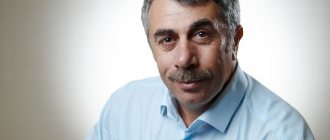Many parents complain that their 2-year-old child speaks poorly. Today, speech development in most children is a little difficult due to the entry of information technology and advertising into our lives. In cities, life is very active, so children are greatly distracted by the hustle and bustle and various gadgets.
Parents are more busy with work, TV, computers, phones, tablets. Activities with children in some families are kept to a minimum, since it is easier for parents to teach their children to play on a tablet or phone, or turn on cartoons, than to constantly read books and play with the child. These factors provoke delayed speech development (SDD), which can affect the child’s speech and intellectual function.
Normal development of speech function in a baby at 2-2.5 years old
A child’s speech development is a long-term process. Children learn to speak their native language gradually. First the hum appears, then the syllables. At 1 year of age, the child begins to form words from syllables. After words are formed, the baby begins to speak in phrases and sentences. At 2.5 years old, a child has a fairly large vocabulary: 200-300 words. The child must be able to form phrases and small sentences. At this age, the baby is able to fulfill some request from others: choose and bring a toy, a pencil, go wash his hands, and more.
You should consult a doctor if your 2.5 year old child does not speak in sentences consisting of 3-4 words.
A 2-2.5 year old patient can construct small sentences: “Mom, let’s go eat,” “I want to go to my mom,” “Mom, let’s go for a walk.” Until the age of three, it is acceptable to distort some words that cannot be pronounced correctly. The child of the year pronounces all sound units well, except for “R” and “L”. This is the norm, so parents should not worry. The baby will begin to pronounce these sounds clearly only by the age of 5-7 years.
Children at 2.5 years old should distinguish between toys, animals, and household items. A child under 3 years of age knows basic colors well, and can also distinguish objects by size, temperature, and characteristics. Example: big, hot, warm, small, cold, beautiful. Typical and common questions for a child of this age are: where? Why? Where?
A two-year-old child can clearly distinguish between father, mother, grandmother, grandfather and other relatives, can imitate the main animals in their voices, and imitate adults. Deviations from the norm are allowed for 2-3 months, for the worse or for the better. If a child has a speech delay for more than 3 months, then the doctor may diagnose a delay in speech development.
Normally, speech function develops only through the joint work of both hemispheres of the brain. They constantly exchange information, which is combined and contributes to the formation of speech. Girls' speech function develops faster than boys. Boys' development is usually slightly delayed by 4-5 months. In girls, metabolic processes in the central nervous system occur faster. In boys, information is processed more slowly, which leads to a physiological delay in speech function.
A 3-year-old child must be able to express his own thoughts. When a small patient only copies sentences from cartoons, this indicates a violation of speech function. If parents notice such manifestations, they should come to see a doctor.
Normal speech development at 2 years and 5 months
Although each child’s speech development follows an individual route, there are common norms for speech development and average statistical periods for the appearance of certain language units.
By the age of 2.5 years, children pronounce simple two-word phrases; the dictionary of children of this age contains from 50 to 250 verbal units. These are mainly nouns and verbs, less often pronouns, adjectives, and adverbs. By the time between the third and fourth years of life, the active vocabulary will increase to 1 thousand words.
Willingness to communicate with familiar and unfamiliar adults and children is the main quality of children's speech at this age. Although the child still does not speak well in simple sentences, he can easily talk about what he saw and ask about what interests him.
In the third year of life, children begin the period of mastering the linguistic system of the language. The child does not yet have a conscious attitude towards his own speech and the speech of those around him.
Weakness of the muscles of the lips and tongue, the inability to perform subtle movements of the organs of articulation lead to the fact that the baby cannot yet pronounce many sounds accurately. Mastering sibilant and sonorant consonants (l, p) is still ahead. For example, the sound [P] appears at five to seven years of age.
A 2.5-year-old child is actively interested in his surroundings, often asks about objects and phenomena that are accessible to his understanding: “What is this?”, “Why?”, “Why?” These questions cannot be ignored, because without receiving an answer several times, children simply stop contacting adults and begin to have less contact.
If parents answer all the questions of interest to a little explorer of the world, they develop a very valuable quality - an inquisitive mind, a desire for knowledge, thereby developing it.
The concept of ZRR and ZPR
Speech development delay (SSD) is manifested by a lag in the development of speech function, while the baby develops normally intellectually and mentally. Typically, SRD is characterized by a good understanding of the speech of others, fulfilling requests, but poor speech function (the number of phrases and words is small, the words are unclear, incomprehensible to relatives). This condition is usually easily corrected. Delayed psychospeech development (DSRD) is characterized by a violation of the speech function and intellectual abilities of the baby.
ZRR and ZPRR do not arise independently. Such deviations appear due to genetic damage, severe pregnancy, infectious diseases (during pregnancy, after birth), and mental pathologies.
Often, developmental delay in children occurs due to a difficult pregnancy. ZPRR and ZRR may appear after hypoxia during pregnancy or childbirth due to the threat of miscarriage, placental abruption, or entanglement of the umbilical cord. Underdevelopment of speech is provoked by rapid labor, too long labor, fetal asphyxia, and a long period after the rupture of amniotic fluid.
Delayed development of speech function is facilitated by the use of obstetric forceps, a vacuum extractor, and pressing on the abdomen during weak labor. Mental and speech function is reduced in children with hydrocephalic syndrome. With hydrocephalus, the cerebrospinal fluid compresses the brain tissue, which leads to its damage. Deficiency of speech function may occur when formulas are used during the neonatal period or up to 6 months of age.
Decreased hearing is a significant reason for the appearance of speech disorders. The child has difficulty hearing the speech of others, so it is difficult for him to reproduce sounds on his own. Head injuries, concussions, infectious diseases with damage to brain structures (meningitis, meningoencephalitis) can contribute to underdevelopment of speech function.
Stress often inhibits speech development. If parents have frequent quarrels, the child will not strive to learn to speak. In this case, it will simply close.
If a child speaks little at 2 years old, then there is no need to wait until he is 5 years old. You should not listen to the advice of others; you should consult a doctor as soon as possible.
Diagnostic measures
If a two and a half year old child shows signs of speech delay, you should see a doctor. Depending on the reasons, parents and their child need to contact a neurologist, psychiatrist, psychologist, psychotherapist, or speech therapist. Before you see a specialist, you need to see a pediatrician (children's doctor). The doctor will collect anamnestic data: the course of pregnancy and childbirth, breastfeeding, injuries, stress, alcohol and drug use by relatives, infectious chronic diseases. After collecting anamnesis, the doctor will prescribe the necessary examination, which will confirm or exclude the diagnosis (disease).
Diagnostic techniques:
- Blood, urine, cerebrospinal fluid analysis, biochemical study (done depending on the disease).
- Magnetic resonance imaging, computed tomography, radiography.
- Consultation with an ENT doctor, otolaryngological examination.
- Electroencephalogram.
- Electrocardiography.
- Neurosonography and other examinations.
According to the results of the examination, most children are found to have one or another disease. Often, children with mental retardation and mental retardation are prescribed drug therapy, as well as speech therapy sessions. Treatment begins as early as possible, since delay is dangerous due to severe disturbances in future development, difficulty in learning at school, as well as in implementation and adaptation in the social environment.
Neurologists can carry out therapy as early as 1 year, if necessary earlier. A defectologist works with children from the age of 2. Speech therapists work with children from 4-5 years of age.
Who to contact for help
The reasons leading to speech delay are different. To solve a problem, parents sometimes have to contact several specialists. Among them, five main ones can be distinguished - speech therapist, defectologist, ENT (to exclude hearing impairment), neurologist or neuropsychiatrist.
There are various methods for correcting general speech underdevelopment (GSD) and tempo delay (RTD), which are used by speech therapists and speech pathologists. In combination with the necessary medication correction prescribed by doctors, they give excellent results.
How to test your child's hearing at home
Drug treatment is used only in severe cases; it is often possible to do without it. Sometimes it is not needed at all, but doctors prescribe medications. A good speech therapist can compensate for some of them by simply working with the baby; there will be no need to take them.
Remember that only doctors have the right to prescribe medications. Speech therapists do not have this right.
For their part, parents must create a rich speech environment during the correction to stimulate the child’s speech. You need to force the baby to talk, pretend that you don’t understand him if he is trying to explain with gestures what he wants.
When visiting a specialist, parents of a child with delayed speech development need to openly talk about possible problems with the child’s health in order to receive effective help from him.
In case of speech delay, parents can work with their children independently. Many do just that: for the first time they turn to a speech therapist for advice, and based on the knowledge and materials acquired, they begin independent work.
The task of the speech therapist in this case is to diagnose speech development and identify the child’s problems. After this, parents understand the current situation and begin to work with the baby independently.
Reviews about a specialist are important, but there is a nuance. Just because a speech therapist helped the son or daughter of your friend/neighbor, this does not mean that he will be able to help your child. All children are different, with their own characteristics and skills, and it is not always possible for a specialist to find an approach to a child and solve his problems.
Pay attention to the recommendations and experience of the speech therapist. You can decide whether you will go to him after you see him at work and make sure that the child is interested in the process. The best way to evaluate a speech therapist is to come for a diagnosis and see how the speech therapist works, how the baby reacts, and how interested he is.
The state is trying to the best of its ability to help children with speech delays. For this purpose, state centers for psychological, pedagogical and medical and social assistance have been created. They are located in every district of large cities and provide services free of charge. But getting there is not easy, since there are many children with problems, and the number of places is limited.
Therapy for speech delay
Before speech therapy sessions, the child is treated for the underlying disease (drug therapy, physiotherapy, surgical correction and other types of treatment). To increase brain blood flow and improve neuronal nutrition, nootropic and metabolic medications are indicated for children with delayed speech function: Cortexin, Pantogam, Actovegin, Glycine.
Pantogam is considered an effective drug for the treatment of speech disorders. To enhance the effect of therapy, it is combined with Glycine. The course of therapy is 1-6 months, depending on the severity of the pathology. Cortexin has also proven itself well as a children's nootropic drug. It is relatively safe and effective. B vitamins improve brain function.
Nootropics should only be prescribed by a neurologist or psychiatrist. You should not take medications on your own. Nootropics should only be taken in courses. There should be a break of 1-2 months between course therapy. You should not use more than 2 nootropics at the same time. This may harm the baby.
After or during the course of treatment, speech therapy sessions are conducted. During an appointment with a speech therapist, the specialist studies the medical history and carries out speech therapy diagnostics. The speech therapist uses special cards or books to determine which sounds the child cannot reproduce. At the end of the study, the specialist writes a lesson plan.
A child may be sent to a specialized kindergarten for speech correction if there are very serious speech impairments. Speech correction classes can take place at home or in gardens. Lessons are conducted both individually and in groups. During classes they use books, cards with pictures, and games that make it easier to learn normal speech. The main aspect of correction is considered to be homework with parents. The child repeats what he learned in class and actively talks with loved ones.







